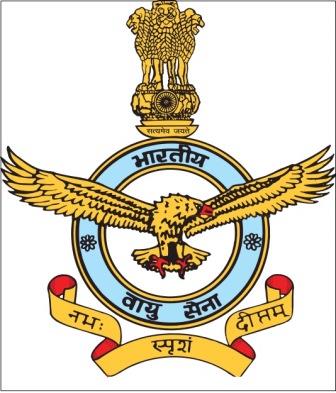
NRI Quota in NEET: Complete Guide by Bodmas Education
Subscribe YouTube Channel for Latest Updates:- Bodmas Medical
Bodmas Medical
The National Eligibility cum Entrance Test (NEET) is a critical examination for students aspiring to pursue medical education in India. For Non-Resident Indian (NRI) students, securing admission in Indian medical colleges can be achieved through the NRI quota. This comprehensive guide by Bodmas Education provides detailed information about the NRI quota in NEET, including eligibility criteria, documents required, application process, and other essential details to help you navigate the admission process smoothly.
Table of Contents
- Introduction to NEET and NRI Quota
- Eligibility Criteria for NRI Quota in NEET
- List of Documents Required for NRI Quota
- Detailed Explanation of Required Documents
- Step-by-Step Application Process for NRI Quota
- Counseling Process for NRI Quota Admissions
- Important Considerations for NRI Quota Applicants
- FAQs About NRI Quota in NEET
- Why Choose Bodmas Education for NEET Admissions?
- NRI Consultants
1. Introduction to NEET and NRI Quota
NEET Overview
The National Eligibility cum Entrance Test (NEET) is a single entrance examination for admission to undergraduate medical and dental courses in India. Conducted by the National Testing Agency (NTA), NEET is mandatory for students seeking admission to MBBS, BDS, and other medical programs in government and private medical colleges across India.
NRI Quota Overview
The NRI quota is a special category for Non-Resident Indian students, allowing them to secure a specified number of seats in medical colleges without competing in the general merit list. This quota is designed to facilitate the admission of students of Indian origin who reside abroad.
2. Eligibility Criteria for NRI Quota in NEET
To be eligible for admission under the NRI quota in NEET, candidates must meet certain criteria. Here are the primary eligibility requirements:
- NRI Status: The candidate must be an NRI, Person of Indian Origin (PIO), or Overseas Citizen of India (OCI). Proof of NRI status, such as a valid passport, is mandatory.
- Educational Qualification: Candidates must have completed their 10+2 or equivalent examination with Physics, Chemistry, Biology/Biotechnology, and English as core subjects. They should have secured the minimum required percentage in these subjects as prescribed by the Medical Council of India (MCI).
- NEET Qualification: Candidates must have qualified in the NEET examination with the minimum required percentile. The qualifying percentile varies each year based on the number of candidates and the difficulty level of the exam.
- Proof of Residence: Candidates must provide proof of their residence outside India, such as a resident visa or a valid work permit of the parent/guardian residing abroad.
- Other Criteria: Some colleges may have additional criteria, such as specific age limits or specific marks in certain subjects. Candidates are advised to check the specific requirements of the college they are applying to.

3. List of Documents Required for NRI Quota
To apply for admission under the NRI quota, candidates need to submit a comprehensive set of documents. These documents are essential to verify the candidate’s eligibility and ensure a smooth admission process. Here is a detailed list of the required documents:
- NEET Scorecard: A valid NEET scorecard showing the candidate’s score and percentile.
- 10th and 12th Mark Sheets: Mark sheets and certificates of the 10th and 12th standard or equivalent examinations.
- Passport: A valid passport of the candidate.
- NRI Status Proof: Documents proving NRI status, such as an NRI certificate, PIO card, or OCI card.
- Residence Proof: Proof of residence outside India, such as a resident visa or work permit of the parent/guardian residing abroad.
- Domicile Certificate: Some colleges may require a domicile certificate from the candidate’s home state in India.
- Affidavit: An affidavit from the parent/guardian stating that they are an NRI and the candidate is dependent on them.
- Migration Certificate: A migration certificate from the previous educational institution attended by the candidate.
- Transfer Certificate: A transfer certificate from the previous school/college attended by the candidate.
- Medical Fitness Certificate: A medical fitness certificate stating that the candidate is medically fit to pursue the course.
- Photographs: Recent passport-sized photographs of the candidate.
- Other Documents: Any other documents as specified by the college or university.
4. Detailed Explanation of Required Documents
Each document plays a crucial role in verifying the candidate’s eligibility and identity. Here is a detailed explanation of the documents required for the NRI quota:
NEET Scorecard
The NEET scorecard is the primary document that showcases the candidate’s performance in the NEET exam. It includes the candidate’s score, percentile, and All India Rank. This document is essential to prove that the candidate has qualified for NEET and is eligible for admission.
10th and 12th Mark Sheets
The mark sheets and certificates of the 10th and 12th standard or equivalent examinations are required to verify the candidate’s academic qualifications. These documents should show the subjects studied, marks obtained, and the overall percentage.
Passport
A valid passport is mandatory to prove the candidate’s NRI status. The passport should have a clear photograph of the candidate and should be valid at the time of application.
NRI Status Proof
Documents such as an NRI certificate, PIO card, or OCI card are required to prove the candidate’s NRI status. These documents are issued by the Government of India to individuals of Indian origin residing abroad.
Residence Proof
Proof of residence outside India, such as a resident visa or work permit of the parent/guardian residing abroad, is required to verify that the candidate is an NRI. This document should clearly state the residential address and the validity of the visa or work permit.
Domicile Certificate
Some colleges may require a domicile certificate from the candidate’s home state in India. This certificate is issued by the state government and proves that the candidate is a resident of that state.
Affidavit
An affidavit from the parent/guardian stating that they are an NRI and the candidate is dependent on them is required. This document should be notarized and should include the parent/guardian’s details, their NRI status, and the candidate’s details.
Migration Certificate
A migration certificate from the previous educational institution attended by the candidate is required to verify that the candidate has completed their previous education and is eligible for admission to the new institution.
Transfer Certificate
A transfer certificate from the previous school/college attended by the candidate is required to verify that the candidate has left the previous institution and is eligible for admission to the new institution.
Medical Fitness Certificate
A medical fitness certificate stating that the candidate is medically fit to pursue the course is required. This certificate should be issued by a registered medical practitioner and should include details of the candidate’s medical history and current health status.
Photographs
Recent passport-sized photographs of the candidate are required for the application form and other admission-related documents. The photographs should be clear and should have a white background.
Other Documents
Any other documents as specified by the college or university should also be submitted. These may include character certificates, income certificates, or other specific documents required by the institution.
5. Step-by-Step Application Process for NRI Quota
Applying for admission under the NRI quota involves several steps. Here is a step-by-step guide to help you navigate the application process:
Step 1: Research and Identify Colleges
The first step is to research and identify medical colleges that offer admission under the NRI quota. Bodmas Education can assist you in creating a list of reputable colleges that fit your academic profile and career goals.
Step 2: Check Eligibility Criteria
Once you have identified the colleges, check their eligibility criteria for NRI quota admissions. Ensure that you meet all the requirements, including academic qualifications, NEET score, and NRI status.
Step 3: Gather Required Documents
Gather all the required documents mentioned in the previous section. Ensure that the documents are complete, accurate, and up-to-date.
Step 4: Fill Out Application Forms
Fill out the application forms for the colleges you are applying to. Most colleges have online application forms available on their official websites. Ensure that you fill out the forms accurately and provide all the required information.
Step 5: Submit Application Forms
Submit the application forms along with the required documents to the colleges. Some colleges may require you to submit the forms online, while others may require you to send them by post or submit them in person.
Step 6: Pay Application Fees
Pay the application fees as required by the colleges. The fees can usually be paid online through the college’s official website or through a bank transfer.
Step 7: Attend Counseling Sessions
Some colleges conduct counseling sessions for NRI quota candidates. These sessions may include personal interviews, academic performance reviews, and document verification. Attend the counseling sessions as required by the colleges.
Step 8: Secure Admission Offer
Upon receiving an admission offer, you will need to secure your seat by paying the admission fees and submitting the original documents for verification. Ensure that you complete all the required formalities within the specified deadlines.
6. Counseling Process for NRI Quota Admissions
The counseling process for NRI quota admissions may vary from one college to another. Here is a general overview of the counseling process:
1. Registration
Candidates need to register for the counseling process by filling out the registration form on the college’s official website. They may need to pay a counseling fee at this stage.
2. Choice Filling
Candidates need to fill in their choices of colleges and courses based on their preferences. They can choose multiple colleges and courses in order of preference.
3. Document Verification
Candidates need to attend the document verification process, where their original documents will be verified by the college authorities. Ensure that you carry all the required documents in original along with their photocopies.
4. Seat Allotment
Based on the candidate’s preferences, NEET score, and availability of seats, the college will allot seats to the candidates. The seat allotment result will be published on the college’s official website.
5. Admission Confirmation
Candidates who are allotted seats need to confirm their admission by paying the admission fees and submitting the original documents for verification. They need to complete all the required formalities within the specified deadlines.
7. Important Considerations for NRI Quota Applicants
1. Admission Fees
The admission fees for NRI quota seats are usually higher than the regular fees. Ensure that you are aware of the fee structure and are prepared to pay the required fees.
2. Limited Seats
NRI quota seats are limited and are usually allotted on a first-come, first-served basis. Ensure that you complete the application process and secure your seat as early as possible.
3. College-Specific Criteria
Some colleges may have specific criteria for NRI quota admissions, such as additional entrance exams or interviews. Ensure that you check the specific requirements of the college you are applying to.
4. Timelines
Ensure that you are aware of the timelines for the application process, counseling sessions, and admission confirmation. Missing any deadlines may result in the cancellation of your admission offer.
5. Legal Formalities
Ensure that you complete all the legal formalities, such as notarization of documents and obtaining required certificates, well in advance to avoid any last-minute issues.
8. FAQs About NRI Quota in NEET
Q1. What is the NRI quota in NEET?
The NRI quota is a special category for Non-Resident Indian students, allowing them to secure a specified number of seats in medical colleges without competing in the general merit list.
Q2. Who is eligible for the NRI quota in NEET?
Candidates who are NRIs, PIOs, or OCIs, and have qualified in the NEET exam, are eligible for the NRI quota. They must also meet the academic and other eligibility criteria specified by the colleges.
Q3. What documents are required for NRI quota admissions?
Required documents include the NEET scorecard, 10th and 12th mark sheets, passport, NRI status proof, residence proof, domicile certificate, affidavit, migration certificate, transfer certificate, medical fitness certificate, photographs, and other specific documents required by the colleges.
Q4. How can I apply for NRI quota admissions?
You can apply for NRI quota admissions by filling out the application forms of the colleges offering NRI quota seats, submitting the required documents, and paying the application fees. Attend counseling sessions and complete the admission formalities as required by the colleges.
Q5. What is the fee structure for NRI quota seats?
The fee structure for NRI quota seats is usually higher than the regular fees. The exact fee structure varies from one college to another. Ensure that you check the fee structure of the colleges you are applying to.
Q6. Can NRI quota seats be converted to general seats?
NRI quota seats are usually reserved for NRI candidates and cannot be converted to general seats. However, in some cases, if there are vacant NRI quota seats, they may be offered to other eligible candidates based on merit.
9. Why Choose Bodmas Education for NEET Admissions?
Bodmas Education is a trusted name in NEET admissions, offering personalized guidance and support throughout the NRI quota admission process. Here’s why you should choose Bodmas Education:
Expert Knowledge
Bodmas Education has in-depth knowledge of the NRI quota admission processes across various medical colleges. Our experts stay updated with the latest guidelines and requirements to provide accurate and reliable information.
Comprehensive Support
From college selection to document preparation and counseling, Bodmas Education offers end-to-end assistance. Our team ensures that you complete all the required formalities accurately and on time.
Network of Colleges
Bodmas Education has strong relationships with leading medical colleges offering NRI quota seats. Our network helps you secure admission in reputable institutions that match your academic profile and career goals.
Customized Counseling
We provide personalized advice tailored to your specific needs and aspirations. Our counselors work closely with you to understand your preferences and guide you through the entire admission process.
Smooth Admission Process
With Bodmas Education, you can navigate the admission process smoothly and confidently. Our step-by-step guidance ensures that you meet all the requirements and secure your seat without any hassles.
10. NRI Consultants
Securing admission under the NRI quota in NEET can be a complex process, but with the right guidance and support, it becomes manageable and straightforward. This comprehensive guide by Bodmas Education provides detailed information about the NRI quota in NEET, including eligibility criteria, required documents, application process, counseling, and other essential considerations. By following this guide and seeking assistance from Bodmas Education, you can confidently navigate the admission process and secure your seat in a reputable medical college in India. Contact Bodmas Education today to begin your journey towards a successful medical career through the NRI quota in NEET.


























